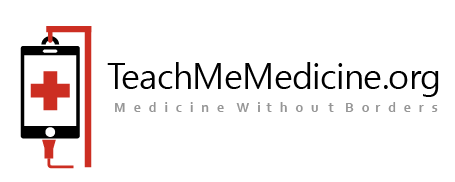Utilizing AI in Medicine
ChatGPT or Google Bard represents a compelling force within the realm of healthcare, as it continuously delves into an array of medical data sources. These encompass symptoms, medical history, imaging data, patient records, and real-time information derived from wearable devices or electronic health records. Employing this wealth of data, ChatGPT or Google Bard engages in a multifaceted analysis that spans diverse healthcare domains.
Its capabilities encompass the evaluation of symptoms, unraveling the root causes of musculoskeletal pain, comprehending intricate medical cases, and determining medical indications for specific conditions. Moreover, it diligently monitors patients’ health, affording an unbroken vigilance that ensures timely intervention and personalized care.
This ceaseless analysis yields a treasure trove of valuable insights, offering potential diagnoses that pave the way for further investigation or treatment. Furthermore, it lends indispensable support to the process of diagnosis and treatment planning, empowering medical professionals with ongoing summaries and enlightening perspectives on complex medical cases.
By contributing to accurate diagnoses and the development of tailored treatment plans, ChatGPT or Google Bard proves instrumental in delivering optimized healthcare outcomes. Notably, it emerges as a pivotal facilitator in the proactive intervention and remote monitoring of patients, ushering in a realm of continuous and personalized care, which is quintessential in ensuring the well-being of individuals throughout their medical journeys.
Leveraging AI in Diagnosing Complicated Medical Conditions: Sarcoidosis
Utilizing Artificial Intelligence for Management of Hypertension
Utilizing Artificial Intelligence for Management of Meniscal Tear
Utilizing AI in Medicine: Symptom Evaluation
Utilizing AI in Medicine: Symptom Evaluation
To ensure accurate assessments and appropriate recommendations when seeking assistance from ChatGPT or Google Bard to diagnose specific symptoms, it is vital to provide comprehensive and specific medical information.
Utilizing AI in Medicine: Musculoskeletal Evaluation
Utilizing AI in Medicine: Musculoskeletal Evaluation
For accurate diagnosis of Musculoskeletal problems using ChatGPT or Google Bard, it is crucial to provide detailed and specific medical information. This ensures a comprehensive evaluation and enables the AI to provide appropriate recommendations.
Utilizing AI in Medicine: Case Evaluation
Utilizing AI in Medicine: Case Evaluation
When consulting ChatGPT or Google Bard for medical case evaluation, it is imperative to provide thorough and specific medical information, including imaging and laboratory studies. This enables the AI to conduct a precise assessment and offer suitable recommendations.
Utilizing AI in Medicine: Medical Indications
Utilizing AI in Medicine: Medical Indications
Patients frequently desire additional information regarding the necessity, indications, risks, and benefits of medical procedures or surgeries that have been recommended to them. AI can offer valuable insights by providing a comprehensive list of indications for each specific procedure.
By leveraging AI technology, patients can gain a deeper understanding of why a particular procedure is recommended, the specific conditions or situations in which it is indicated, and the potential risks and benefits associated with it. This information empowers patients to make informed decisions about their healthcare, ensuring they have a clear understanding of the medical procedure and its implications.
Utilizing AI in Medicine: Treatment Monitoring
Utilizing AI in Medicine: Treatment Monitoring
By utilizing AI technology, you can access comprehensive insights into the specific monitoring requirements for each medication. This includes understanding the recommended frequency of monitoring, laboratory tests, or other assessments that may be necessary to ensure the safe and effective use of the medication. Furthermore, AI can help identify potential interactions between medications, enabling healthcare providers to make informed decisions and adjust treatment plans as needed to mitigate risks.
With the assistance of AI, patients and healthcare professionals can proactively manage medication-related risks by staying informed about monitoring protocols and potential interactions. This empowers individuals to optimize medication safety and achieve the best possible outcomes.
